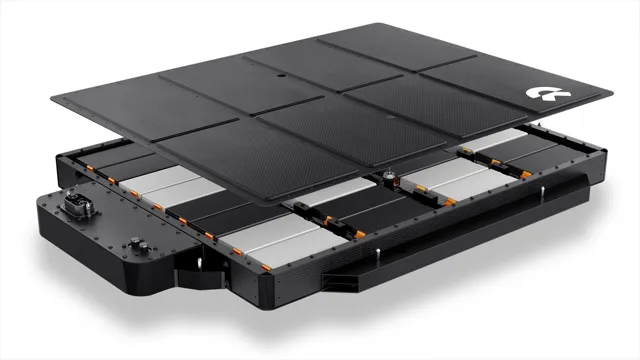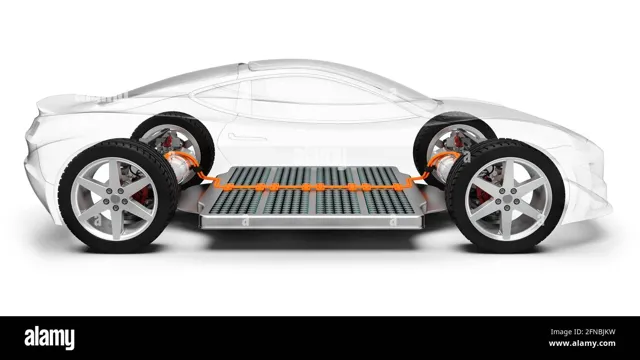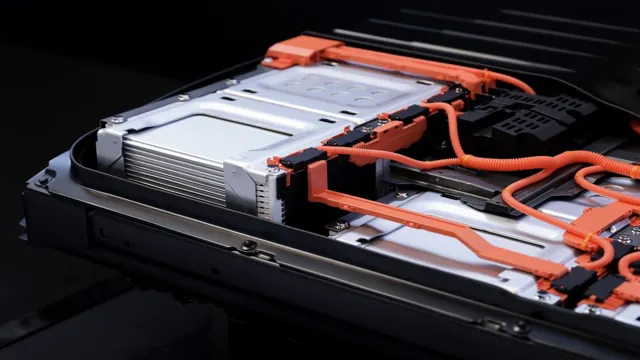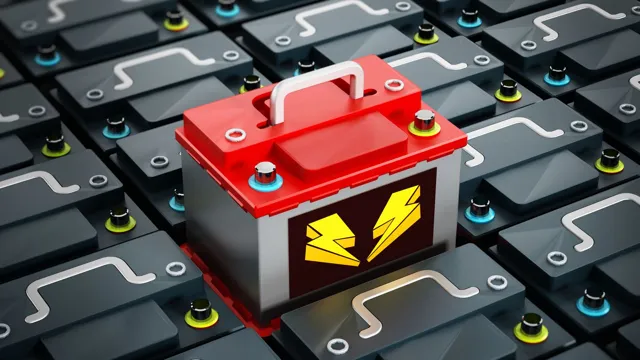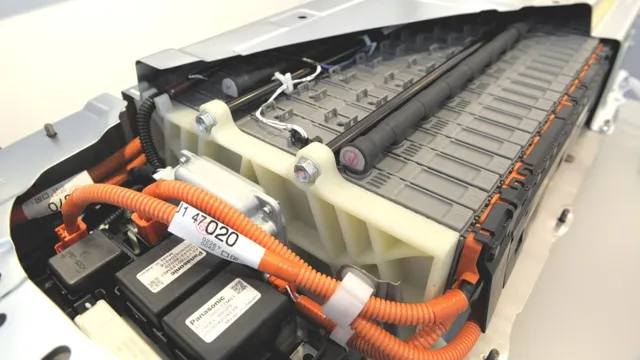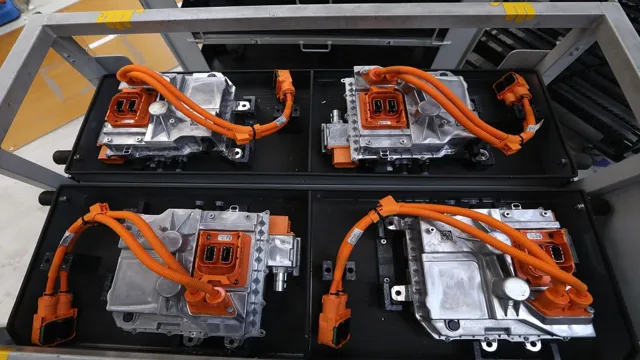Revolutionizing Transportation with No Battery Electric Car Lease
Are you ready to join the electric car revolution, but concerned about the added cost of leasing a battery? We’ve got good news for you! It’s possible to buy an electric car without a battery lease. Battery leases have been a common feature of electric car ownership, particularly in Europe, as a way of reducing upfront costs. However, they can be complex and confusing, leaving many potential electric car buyers uncertain about what they’re getting into.
So, what’s the alternative? Some electric car manufacturers offer the option to purchase the car outright, with the battery included. This means you own the battery outright and don’t have to worry about monthly payments or additional lease charges. Not only can this save you money in the long run, but it also gives you more freedom and control over your vehicle.
You can choose to keep the car for longer periods without worrying about lease terms, and you have more flexibility when it comes to battery upgrades or replacements. Electric cars without battery leases are becoming increasingly popular, and with good reason. They offer a simpler and more transparent ownership experience, putting you in control of your vehicle and reducing the overall cost of ownership.
So why not consider buying an electric car outright and enjoy the benefits of greener, cleaner, and more sustainable driving?
The Problem with Battery Leasing
One trend that has begun to emerge as electric cars gain popularity is the practice of battery leasing. Battery leasing allows consumers to lease the battery separately from the car itself, which can help to lower the initial cost of the vehicle. However, there are several issues with this approach.
For one, it can be difficult to accurately predict the lifespan of a battery, meaning that consumers may end up paying more for a battery lease than they would for a battery purchase in the long run. Additionally, some leasing companies may require strict usage restrictions or charge exorbitant fees for any damage to the battery, which could easily negate any initial savings. Ultimately, opting for an electric car with no battery lease may be the more straightforward and cost-effective choice in the long run.
High Costs of Battery Leasing
Battery leasing has been a popular option for electric car owners due to the high costs of purchasing a battery outright. However, this option has its drawbacks as well, with many consumers finding that the long-term cost of leasing a battery can be significantly higher than purchasing one outright. The problem with battery leasing is that it often involves an ongoing monthly payment, which can add up over time and significantly increase the cost of owning an electric car.
Furthermore, if the battery lease is not transferrable, this can also affect the resale value of the car. This high cost of battery leasing highlights the need for more affordable and accessible options for electric car owners who want to own their batteries outright, without being tied down by ongoing lease payments.

Difficulty in Recycling Batteries
Recycling batteries is a crucial step towards reducing the impact of electronic waste on our environment. However, this process poses several challenges, including the difficulty in recycling the different types of batteries. One of the problems with battery leasing is that it can further complicate the recycling process.
When companies lease batteries, they retain ownership and responsibility for the disposal of the batteries at the end of their life. This means that the recyclability of these batteries is not guaranteed, and they often end up in landfills. Additionally, leasing models often mean that batteries are built to last longer, which means they may contain more toxic materials that are difficult to dispose of safely.
While battery leasing can have benefits, it’s important to ensure that the leased batteries are designed for recycling and that there is a clear process in place for the end-of-life disposal. This helps ensure that our efforts to recycle batteries are effective in reducing electronic waste and creating a sustainable future.
Introducing the Battery-less Electric Car
Are you tired of constantly leasing batteries for your electric car? Well, get excited because the battery-less electric car has arrived! This new technology uses supercapacitors instead of batteries to store energy. Supercapacitors charge faster and last longer than traditional batteries, making them an ideal choice for electric cars. Plus, without the need for a bulky battery, the car can be lighter and more efficient.
Imagine never having to replace a battery or pay lease fees again. The battery-less electric car is not widely available yet, but manufacturers are exploring this technology and we can expect to see more options in the future. In the meantime, keep your eyes peeled for this innovative new solution for sustainable transportation.
How It Works
If the idea of a battery-less electric car sounds like something out of a science fiction movie, it’s time to think again. This innovative vehicle runs on technology that doesn’t require pesky battery changes or frequent stops at a charging station. Instead, it uses electric motors that claim to be powered by energy that’s produced by its owner’s driving habits, so the faster and more aggressive you drive, the more power the car acquires.
While the technology behind the battery-less electric car is still being developed, this exciting new development could be a game-changer in the world of environmentally-friendly transportation. It offers a sustainable, hassle-free option for drivers who want to cut down on their carbon footprint without sacrificing convenience or performance.
Potential Cost Savings
As we continue to search for more ways to reduce our carbon footprint, the concept of battery-less electric cars is gaining traction. By harnessing kinetic energy and converting it to electricity, these cars eliminate the need for heavy and expensive batteries. The potential cost savings from this technology are enormous, as the price of batteries can make up a large portion of the cost of an electric vehicle.
Additionally, the elimination of batteries means less waste in landfills, as batteries have a limited lifespan and can be difficult to recycle properly. The battery-less electric car represents a step forward in sustainability and could potentially make electric cars more accessible to a wider range of consumers.
Environmental Benefits
The emergence of battery-less electric cars marks a significant step forward in the field of sustainable transportation. These cars operate without the need for a traditional battery, instead relying on kinetic energy and supercapacitors to power their electric motors. By eliminating the use of a toxic and resource-intensive battery, these cars reduce environmental harm and boost sustainability.
Not only do they reduce the need for mining and refining, but they also reduce the need for disposal, which can be very harmful to the environment. These battery-less cars have the potential to revolutionize the way we travel, making it more environmentally friendly and sustainable. Switching to such technology can substantially reduce our carbon footprint and help mitigate the effects of climate change, all while preserving our planet’s finite resources.
Battery-less electric cars are the future of sustainable transportation, marking a new era of innovation and sustainability.
Types of Battery-less Electric Cars Available
Are you interested in owning an electric car but not keen on battery leasing? Battery-less electric cars are becoming increasingly popular, and there are a few types available on the market. The most common type is the hydrogen fuel cell vehicle, which uses hydrogen gas to power an electric motor. These cars produce only water as a byproduct, making them a much cleaner alternative to traditional gas-powered vehicles.
Another type of battery-less electric car is the solar-powered vehicle, which uses solar panels to convert energy from the sun into electricity. They are perfect for short trips, but not so great for longer journeys due to limited range. Lastly, there are kinetic energy vehicles, which generate electricity through motion.
The braking system captures kinetic energy and converts it to electricity to power the car. These cars are still in the early stages of development, but they have enormous potential in the future. With these battery-less options, you can go green and save money without the hassle of battery leasing.
Models and Features
When we think of electric cars, we often picture them plugged into a charging station. However, there’s another type of electric car that doesn’t require any charging: the battery-less electric car. These cars use a technology called regenerative braking, which converts the kinetic energy of the car’s motion into electricity to power the vehicle’s motor.
There are several types of battery-less electric cars available, each with its own unique features. One example is the AirCar, which runs on compressed air instead of a battery and can travel up to 109 miles on a single charge. Another example is the Solar-powered car, which uses solar panels to generate electricity and can travel up to 500 miles on a single charge.
Each type of battery-less electric car has its own advantages and disadvantages, but they all offer a sustainable and environmentally-friendly alternative to traditional gasoline-powered cars.
Pros and Cons of Different Options
When it comes to battery-less electric cars, there are a few different options available. One of the most popular is hydrogen fuel cell vehicles, which use hydrogen gas and oxygen to create electricity, with the only byproduct being water. These cars are quiet, efficient, and emit zero pollutants.
However, they are currently quite expensive and the infrastructure for refueling them is still developing. Another option is compressed air cars, which use compressed air to power a piston that drives the car’s wheels. These cars are affordable and emit no pollutants, but they have a limited range and can take a long time to refill their air tanks.
Finally, there are kinetic energy recovery systems (KERS), which use energy from braking to power the car. These cars are the most basic and affordable option, but they have limited range and rely on frequent braking to recharge. Overall, each type of battery-less electric car has its own pros and cons, and choosing the right one will depend on your individual needs and priorities.
Is A Battery-less Electric Car Right for You?
If you’re considering an electric car without a battery, there are a few things to consider. While these cars are growing in popularity due to their lower environmental impact, they may not be the right fit for everyone. For starters, their range can be limited, typically not exceeding 100 miles on a single charge.
This may be fine for local errands and commuting, but longer road trips could prove challenging. Additionally, some companies may require a longer lease term or a higher rental rate for electric cars without a battery due to their limited availability. However, if you’re looking to cut down on your carbon footprint and want to save money on gas, an electric car with no battery lease could be a great fit.
Just make sure to do your research and consider your personal driving habits before making a final decision.
Conclusion
In conclusion, the concept of an electric car with no battery lease is a game changer in the world of transportation. Not only does it eliminate the hefty cost of purchasing a battery, but it also makes owning an electric car much more accessible and affordable for the average consumer. It’s like getting a car without the hassle of a monthly battery subscription – now who wouldn’t want that? So, wave goodbye to the annoyance of battery leases and say hello to a greener and more cost-effective future of driving.
“
FAQs
Can I lease an electric car without a battery?
No, it is not possible to lease an electric car without a battery as the battery is the core component of an electric car and provides the essential energy required to run the car.
How does leasing an electric car work?
Leasing an electric car works similarly to leasing any other type of car. You make monthly payments for the duration of the lease, typically 2-4 years, and return the car at the end of the lease term.
Are there any tax incentives for leasing an electric car?
Yes, there are tax incentives available for leasing an electric car. The federal government offers a tax credit for qualified electric vehicles, and some states also offer additional incentives such as rebates or tax credits.
What happens if the battery fails during the lease term?
If the battery in your leased electric car fails during the lease term, it is generally covered under the manufacturer’s warranty. You should contact the dealership or leasing company to make arrangements for repairs or replacement.
